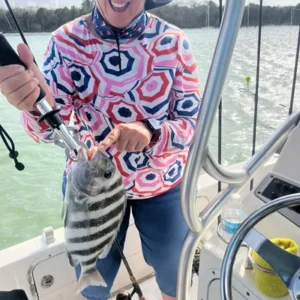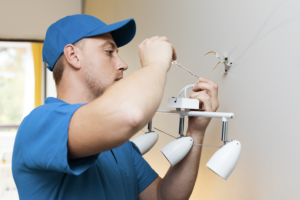Biology Games on PBS Kids: Fun and Educational Learning for Children
Introduction
In today’s digital age, educational games have become a powerful tool for engaging children in learning. PBS Kids, a trusted name in children’s education, offers a variety of biology games that make science fun and interactive. These games help young learners explore life sciences, ecosystems, animal behavior, and more in an entertaining way.
This article will explore the best biology games on PBS Kids, their educational benefits, and how they support STEM learning. Whether you’re a parent, teacher, or caregiver, you’ll discover how these games can enhance a child’s understanding of biology while keeping them entertained.
Why Choose PBS Kids Biology Games?
PBS Kids is renowned for its high-quality, research-backed educational content. Here’s why their biology games stand out:
✅ Aligned with Educational Standards – Designed with input from educators to support school curricula.
✅ Engaging and Interactive – Uses storytelling, animations, and gameplay to teach complex concepts.
✅ Kid-Friendly and Safe – Ad-free and age-appropriate, ensuring a secure learning environment.
✅ Free and Accessible – Available online and on mobile devices at no cost.
Now, let’s dive into some of the best biology games on PBS Kids!
Top Biology Games on PBS Kids
1. Wild Kratts: Creature Power
Game Link: PBS Kids Wild Kratts
Educational Focus: Animal adaptations, habitats, and survival strategies.
Gameplay:
Kids join the Kratt brothers to explore different animals and their unique abilities. By completing missions, they learn how creatures adapt to their environments.
Key Learning Outcomes:
- Understanding animal behaviors
- Exploring ecosystems and food chains
- Learning about predator-prey relationships
2. The Cat in the Hat Knows a Lot About That!
Game Link: PBS Kids Cat in the Hat
Educational Focus: Nature exploration, plant growth, and animal biology.
Gameplay:
Children follow the Cat in the Hat on adventures, solving puzzles related to plants, insects, and animals.
Key Learning Outcomes:
- Basics of photosynthesis
- Life cycles of plants and insects
- How animals interact with their surroundings
3. Nature Cat’s Great Outdoors
Game Link: PBS Kids Nature Cat
Educational Focus: Environmental science, plant biology, and outdoor exploration.
Gameplay:
Kids help Nature Cat and his friends explore forests, ponds, and gardens while learning about nature.
Key Learning Outcomes:
- Identifying different plant species
- Understanding ecosystems and biodiversity
- Importance of conservation
4. Dinosaur Train
Game Link: PBS Kids Dinosaur Train
Educational Focus: Paleontology, prehistoric life, and evolution.
Gameplay:
Children board the Dinosaur Train to learn about dinosaurs, fossils, and natural history.
Key Learning Outcomes:
- Differences between herbivores and carnivores
- How fossils are formed
- Evolutionary biology basics
5. Plum Landing
Game Link: PBS Kids Plum Landing
Educational Focus: Ecosystems, wildlife, and environmental science.
Gameplay:
Kids solve environmental challenges while exploring different habitats around the world.
Key Learning Outcomes:
- How living organisms depend on each other
- Human impact on nature
- Conservation strategies
How Biology Games on PBS Kids Enhance Learning
1. Encourages Curiosity and Exploration
Children naturally ask questions about the world. PBS Kids Games nurture this curiosity by allowing them to explore virtual ecosystems, dissect plants (virtually), and observe animal behaviors.
2. Reinforces STEM Skills
Science, Technology, Engineering, and Math (STEM) skills are crucial for future careers. These games introduce:
- Scientific reasoning (hypothesis testing, observation)
- Critical thinking (problem-solving in ecosystems)
- Data interpretation (tracking animal behaviors)
3. Supports Different Learning Styles
Not all children learn the same way. PBS Kids games incorporate:
- Visual learning (animations, diagrams)
- Auditory learning (narration, sound effects)
- Kinesthetic learning (interactive click-and-drag activities)
4. Teaches Environmental Responsibility
By simulating real-world ecosystems, kids learn the importance of conservation and sustainability early on.
Read More : biology games pbs kids
How Parents and Teachers Can Use PBS Kids Biology Games
1. Supplement Classroom Lessons
Teachers can integrate these games into biology lessons to reinforce topics like:
- Life cycles (frogs, butterflies)
- Habitats (rainforests, oceans)
- Food webs (predators, prey)
2. Family Learning Time
Parents can play alongside kids, discussing concepts like:
- “Why do some animals hibernate?”
- “How do plants make their own food?”
3. Homeschooling Resource
Homeschoolers can use these games as interactive science modules.
Conclusion: PBS Kids Biology Games Make Learning Fun!
PBS Kids Games offers some of the best biology games for children, blending education with entertainment. From exploring dinosaur fossils with Dinosaur Train to learning about ecosystems in Plum Landing, these games make science exciting and accessible.
By incorporating these games into learning routines, parents and educators can foster a lifelong love for biology in young minds.
FAQ: PBS Kids Biology Games
Q: Are PBS Kids biology games free?
A: Yes! All games on PBS Kids are free to play.
Q: What age group are these games for?
A: Most games are designed for kids aged 4-8, but older children may also enjoy them.
Q: Can these games be played on mobile devices?
A: Yes, many PBS Kids games are available on iOS and Android.
Q: Do these games require downloads?
A: No, they can be played directly in a web browser.
Q: How do these games align with school standards?
A: PBS Kids collaborates with educators to ensure games support Next Generation Science Standards (NGSS).














1 comment